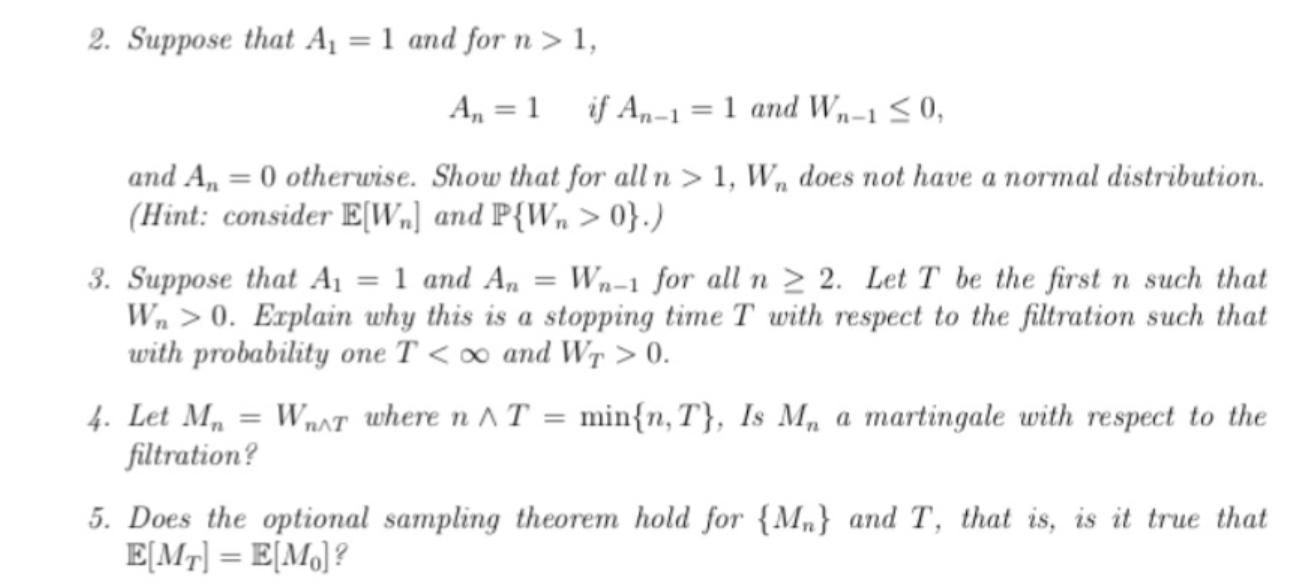Answered step by step
Verified Expert Solution
Question
1 Approved Answer
Suppose X1, X2,... are independent random variables each with a N(0, 1) dis- tribution. Let F, denote the information in X,..., Xn, and let


Suppose X1, X2,... are independent random variables each with a N(0, 1) dis- tribution. Let F, denote the information in X,..., Xn, and let A1, A2,... be a sequence of random variables such that for each j, A, is F-1-measurable. Let W = 0 and for n > 0, " W = AjXj. j=1 1. Suppose that A; = j. Explain why W has a mean zero normal distribution. What is E[W2]? 2. Suppose that A = 1 and for n > 1, A = 1 = if An-11 and Wn-1 0, and An = 0 otherwise. Show that for all n > 1, W, does not have a normal distribution. (Hint: consider E[W] and P{W > 0}.) 3. Suppose that A = 1 and An = Wn-1 for all n 2. Let T be the first n such that Wn>0. Explain why this is a stopping time T with respect to the filtration such that with probability one T < and WT > 0. 4. Let M = W^T where n^T = min{n, T}, Is M, a martingale with respect to the filtration? 5. Does the optional sampling theorem hold for {Mn} and T, that is, is it true that E[MT] =E[MO]?
Step by Step Solution
There are 3 Steps involved in it
Step: 1
2 To show that W does not have a normal distribution for all n 1 we can consider the expected value ...
Get Instant Access to Expert-Tailored Solutions
See step-by-step solutions with expert insights and AI powered tools for academic success
Step: 2

Step: 3

Ace Your Homework with AI
Get the answers you need in no time with our AI-driven, step-by-step assistance
Get Started


